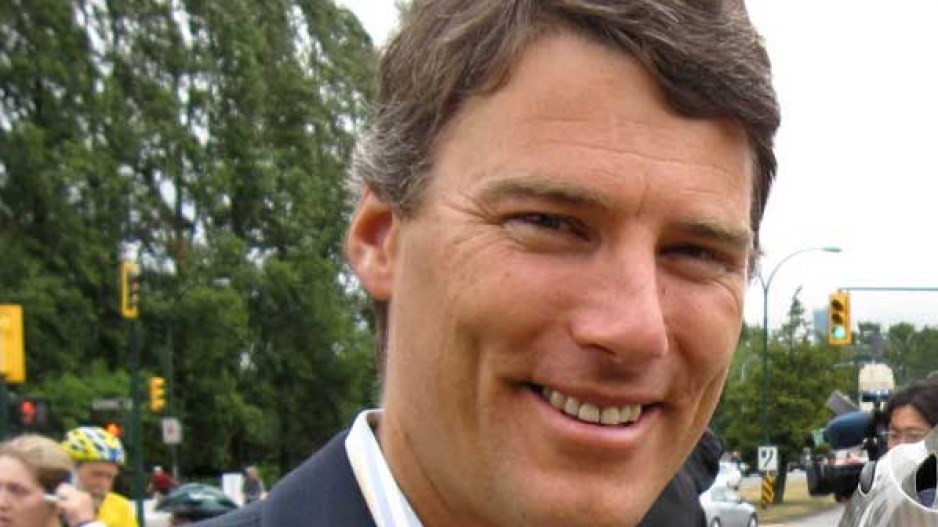Vision Vancouver slipped a notch on Saturday, but amazingly, for all the anger, accusations, expectations and hopes of non-Vision candidates, not much really changed. Vision lost one seat on council to the NPA but still delivered Mayor-elect Gregor Robertson his crucial majority. The ruling municipal party in Vancouver continues to be in opposition to the ruling political party in Victoria. Councillors well past their best-before dates, but with recognizable names, are back in their chairs.
With his majority, Robertson can do what he wants for the next four years—except maybe ban cetaceans from the Vancouver Aquarium. Otherwise, he’ll only be hampered by his own desire to have nothing to apologize for in 2018.
Much has been made of the surprisingly strong showing of NPA mayoralty candidate Kirk LaPointe, who tallied 41% of the vote compared to Robertson’s 48%. But the wakeup news for the NPA is that with COPE’s mayoralty votes added to Vision’s, the civic “left” actually grew from Robertson’s 54% and 53% wins in the previous two elections to 56% in this one. Bike lanes, GHG emission reductions, anti-homelessness initiatives and increased density are here to stay.
This election pivoted between anger at Robertson/Vision and angst about LaPointe/NPA. Angst won. In spite of all the new angry voters out there bumping the turnout from 35% in 2011 to 44%, even more voters showed a continuing faith in the Greenest City agenda and a lack of trust in an off-the-shelf plug-and-play mayor with no real platform or policy passions. That Kirk LaPointe was essentially appointed and financed by one man compounded those doubts.
Please, let this be the last municipal election without spending or campaign contribution limits—a change supported unanimously by Vancouver’s council but agonizingly slow in getting approved by Victoria. Throwing almost $5 million into an at-large campaign that shifted one council seat and a few park board and school board seats is a colossal waste of money and undermines so many tenets of good democracy.
While both parties shadow-boxed with provincial and federal issues (pipelines, tankers, support for oil and gas industries, homelessness, transit funding), some key issues didn’t even register that are entirely municipal: depressed morale at city hall, municipal spending far outpacing inflation, six-month delays for a building permit appointment (adding $20,000 to the price of a new home) and, yes, transparency.
And then there are the zoning issues. The Vancouver We Want may have no new residents, no new towers, plenty of affordable housing and no decrease in property values, but any council of any political stripe knows this just isn’t going to happen.
Instead the next four years will be fraught with inevitable tensions around fitting in the unstoppable 5,000 new residents—and their cars—arriving every year in a way that least upsets people happy with their leafy neighbourhoods.
Managing that change in a way that honestly engages citizens is Robertson’s biggest challenge. One way to signal a new start is to make good on his election-eve apology by turfing City Manager Penny Ballem for her role in the Grandview-Woodlands shower of towers debacle. Then he could dump the media relations department so senior staff can talk directly to citizens (through the media) the way they used to.
Next up for voters is the little-known spring regional referendum on new sources of funding for the transit and transportation improvements in the Mayors’ Council’s Regional Transportation plan. Everyone who ran in this election—in every municipality, winners and losers alike—has to get involved in this. In a matter of months, a campaign that typically takes two years to win will have to deliver a positive result or else tank the future of mobility in the region—and undermine the economic, social and environmental health of the region for the next generation.




